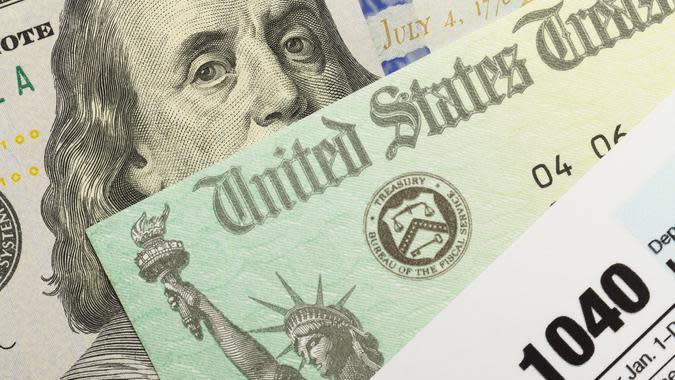Retire Without Debt With These Hacks

No matter when you plan to retire or what kind of retirement you envision, being debt-free is critical for getting there. It's best to dump debt before you stop working, said Steven Repak, a certified financial planner and author of "6 Week Money Challenge: For Your Personal Finances."
Read: With a Recession Looming, Make These 3 Retirement Moves To Stay On Track
Costco's Best Deals? Employee Reveals 10 Standout Buys for Your Money
"If you have no mortgage, no credit card debt and no car payments, it may help reduce the risk of you running out of money during retirement," Repak said. "That's why the goal of having no debt by the time you retire should be at the top of your list." Whether you want to eliminate debt or start paying up for retirement now, here are some tips to help you reach your retirement goals.

Retirement Planning 101
15. Slash Household Costs
Renegotiating auto insurance rates, cell phone service, electricity and other necessities can save you a significant amount of money each month. "By just reducing 15% of household expenses, the average household could save about $3,700 a year," according to Repak. Here are some other ways to cut down on major expenses:
Look for car insurance with adequate coverage but no personal injury coverage that overlaps your health insurance, or collision coverage on a lower-value car.
Deregulation of the electricity market has resulted in some states allowing residents to choose their energy suppliers, which could save you upwards of 20% on your electric bill.
Reduce your TV bill by switching from high-priced cable service to antenna TV paired with a low-cost streaming service like Pluto or Xumo.
Take Our Poll: How Big of a Sign-Up Bonus Would It Take for You To Change Banks?

14. Know What You've Got
If you don't know where your money is going, you'll have a tough time making the key changes needed to retire debt-free. So take an objective and thorough look at your finances, said Aaron Hatch, a certified financial planner and co-founder of Woven Capital in Redding, Calif., a fee-only financial planning and investment management firm.
"Get real honest with yourself about your finances," he said. "Pretend you are a business and look at your finances as objectively as possible."
For instance, Hatch said you should use two retirement hacks: create a personal balance sheet and document your cash flow. Your balance sheet is simply your assets compared to your debt, or liabilities. Cash flow is a better term for a budget. At this stage, you want to know where your money is coming from, which is probably easy to determine. You also want to know where your cash is going, which is more difficult. Plenty of free apps are available to help with this phase, including Mint and Goodbudget.

13. Set Goals That Support Your Lifestyle
Retirement planning is about more than finances, and for many, lifestyle is just as important. "As with any financial and life decision, there are trade-offs that need to be considered," Hatch said. "So, it's good to start with what you value most."
Your preferences will determine exactly how much money you need before you retire. For example, you could start by being honest with yourself and answering these questions:
Do you love working, but just want more flexibility?
Do you want a quiet life of gardening, or do you plan to travel full-time?
How important is it to leave a legacy for your kids or community?
According to Hatch, only after you honestly answer these questions in writing will it be possible to move forward with a plan to make retirement both fulfilling and fiscally sound.

12. Take Care of Credit Card Debt
Credit card debt is often the most expensive type of debt, so it makes sense to pay it down before tackling "good debts" such as your home mortgage or student loans. This is true even if you earn credit card rewards, because the high APR can eat up your rewards savings. Start paying more than the minimum balance on one card while continuing to pay the minimum on your others. You can put the extra money towards the highest-interest card first, and once that's paid off, focus on paying off the others in descending order of interest rate. Alternatively, the "Snowball" method -- popularized by financial expert Dave Ramsey -- recommends starting with the card with the lowest balance and build momentum and savings to tackle the larger balances.

11. Do a Trial Run
Early retirement planning gives you plenty of time to test your income goals. These tests can be done by doing your math with a retirement calculator, or by living on your anticipated retirement income and tracking the results. Setting aside a chunk of your pay rather than spending the money gives you a real taste of what your retirement will be like. You'll uncover any flaws in your plan and have time to adjust if needed.

10. Delay Retirement
Waiting until full retirement age gives you extra time to pay down debt and build savings so you can avoid debt in the future. You also benefit by qualifying for your full Social Security benefits or increasing your benefit. For example, if you're 62 or older, you earn an extra 2/3 of a percent for each month you delay collecting beyond full retirement age. In total, that's an 8% increase for each year you delay.

9. Make Your Kids Pay for College
If you didn't have the cash to pay your kids' tuition, you probably haven't maxed out your retirement savings, either. And it's unlikely that you'll be able to while you're saddled with your kid's student loan debt.
Giving kids responsibility for paying for their education teaches them important lessons in financial responsibility and decision-making. For some, this independence might cause them to take school more seriously. Your kids have plenty of time to pay down their debt as they increase their income, whereas your earning years are limited and your income in retirement might decrease.

8. Establish an Emergency Fund
If you count yourself as part of the 56% of people who'd have a hard time paying a $1,000 emergency expense, you might want to focus on creating that nest egg first. Without it, that $1,000 would wind up on a credit card or owed to family or friends. Experts recommend saving enough to get you through three to six months of expense, with retirees and people approaching retirement age needing closer to six months' worth to protect retirement income.

7. Put Those Windfalls to Good Use
Work bonuses and tax refunds are painless sources of cash that you can use to pay down debt or add to your savings and investment accounts. The IRS considers bonus money "supplemental wages," and it allows employers to tax them at a flat rate of 22%. You can offset that by paying down high-interest debt on which you're currently making minimum payments, or by investing the money in a tax-friendly account.

6. Protect Your Health
The older you get, the more money you're likely to spend on healthcare. Maintaining a healthy weight, blood pressure and cholesterol levels can save tens of thousands of dollars in healthcare costs over your lifetime and reduce the risk of going into debt to cover out-of-pocket costs. Medicare covers basic medical expenses, but it sets limits on some services. You could be left high and dry for laser cataract surgery, hearing aids and dental care not requiring hospitalization.

5. Pay Off Your Mortgage
More than 79% of individuals over 65 own homes. An unfortunate consequence of the housing bust is that an increasing number of them carry mortgage debt into retirement. The benefits of paying off your mortgage are two-fold: you eliminate debt and live in your home for free, and you save for property tax, insurance, and repairs. Consider trading in your home for a less expensive one you can purchase outright with the proceeds of the sale. If you're still years away from retirement and can afford a higher payment, you can save thousands in interest by refinancing to a 15-year mortgage from a 30-year mortgage.

4. Earmark Your Savings
Giving each financial goal its own savings account makes it easier to track your progress and resist backsliding. Some accounts, such as PNC's Virtual Wallet, allow you to create wish lists within a single account. Your goals may be less complicated once you retire. If so, reduce the number of accounts or wish lists you maintain, but continue to earmark savings for healthcare and other common expenses.

3. Moonlight for Extra Cash
Turn your spare time into extra income you can use to pay down your debt. The emergence of a "gig economy" has introduced a whole new breed of side jobs that allow workers to choose when and how much they want to work. Airbnb, Lyft and Uber are perfect examples of opportunities that could reduce your debt by thousands of dollars each year.

2. Channel Your Inner Minimalist
There's something your kids want you to know but won't tell you: they don't want your stuff. Widdle down your belongings to the ones you genuinely cherish and donate or sell the things that you don't. Use the proceeds or tax write-off to pay down your debt. Reducing your possessions also puts moving to a smaller home with a lower mortgage within closer reach.

1. Put It in Writing
Business plans give entrepreneurs a bird's-eye view of the relationship between their strategies and the steps they need to take to execute them. It holds them accountable for reaching milestones and provides benchmarks to help them measure their progress. A retirement plan can do the same thing for your retirement.
Retirees and pre-retirees with formal written plans are significantly more likely to feel prepared for retirement, according to "The Benefits of Retirement Planning," by the LIMRA Secure Retirement Institute. Committing your plan to writing creates a tangible roadmap to debt-free retirement.

How Much Will I Need to Retire Early?
Professional retirement advice typically suggests shooting for 80%-90% of the income you had prior to retirement. Search for one of the many retirement planning calculators available online to help decide how much you need for retirement. Take a look at these suggestions for how to retire early:
How to Retire at 40: The first consideration for Millennials and Generation Z to retire by age 40 is to define "retire." For many, retirement means having sufficient passive income to pursue personal interests, start a business, or perhaps even travel the world. Retiring at age 40 means you'll need to cover 19 1/2 years' worth of living expenses or supplement earnings from a business or second career before you can collect from your 401k or IRA. Saving half your income is a good start. You'll buy yourself a year of retirement for every year you work, excluding inflation adjustments and allowances for lifestyle changes.
How to Retire at 50: With 9 ½ years before you're eligible for withdrawals from most retirement accounts and 12 years before you're eligible for Social Security, you'll need to maximize your earnings and savings and minimize spending to fill the gap if you want to retire at 50. Selling your home, even at a loss, can pay off if you downsize significantly and move to a place with lower home prices and lower property tax. Other ways to make retirement work at 50 include taking a part-time job for some or all of the gap years, putting off luxury purchases such as travel and higher-end cars -- or even eliminating the need for a car, if you live or relocate to a city with convenient public transportation.
How to Retire at 55: Retirement at 55 requires less-drastic action, as long as you give yourself time to bulk up your savings and reduce expenses. Pour every cent you can into your 401k, especially if your company matches your contribution. How much you can invest for retirement also goes up as you age. You can pay in $7,500 to your 401k per year once you hit age 50, and $6,500 per year to your IRA.
No matter what your age, you'll live better and with less stress if you retire debt free.
More From GOBankingRates
Sam DiSalvo contributed to the reporting of this article.
This article originally appeared on GOBankingRates.com: Retire Without Debt With These Hacks

 Yahoo Finance
Yahoo Finance 